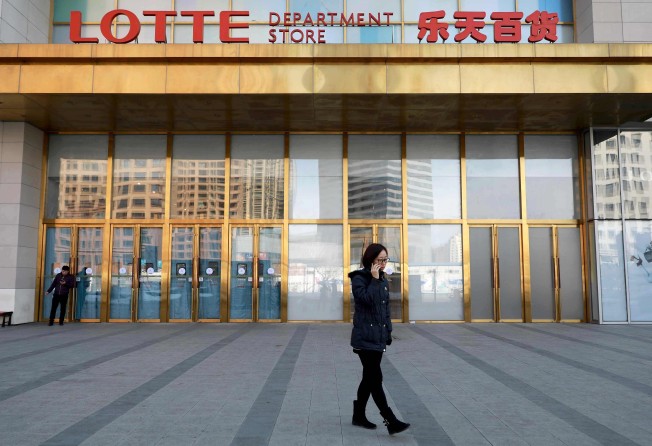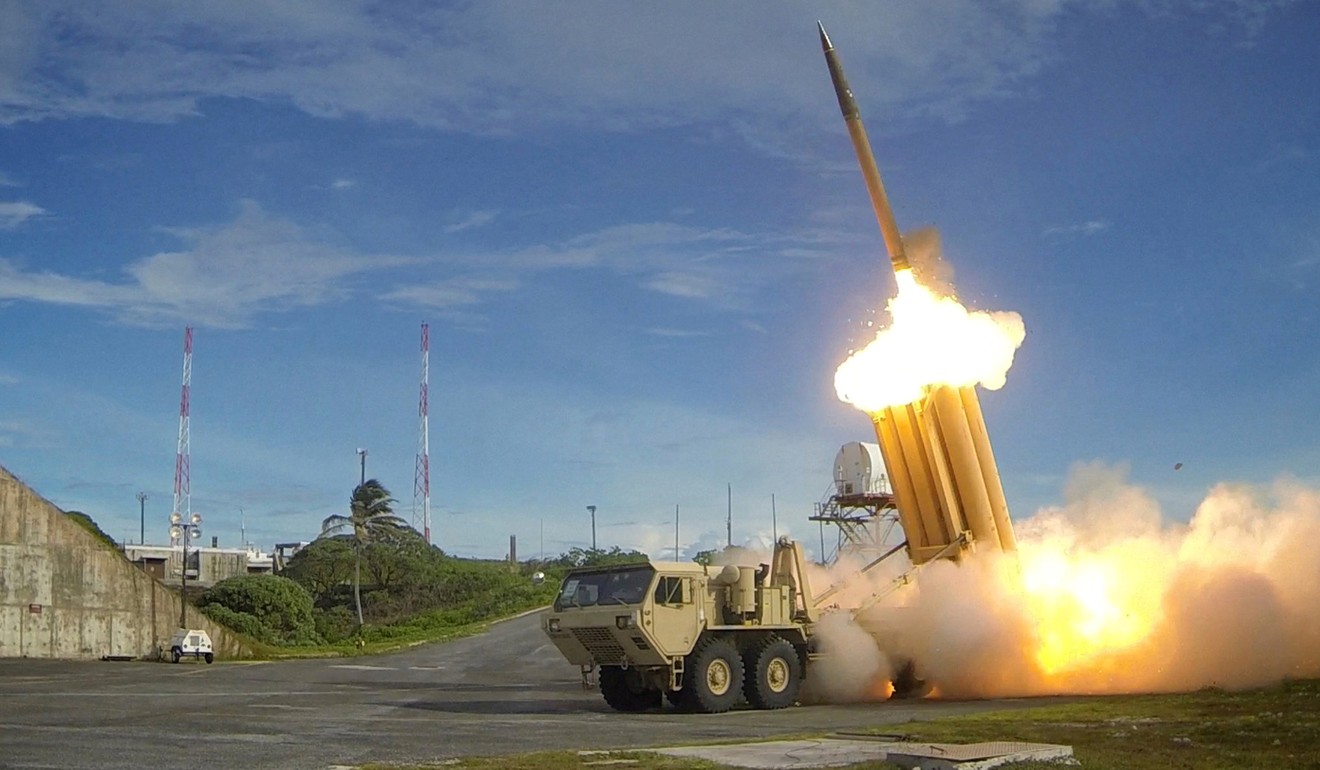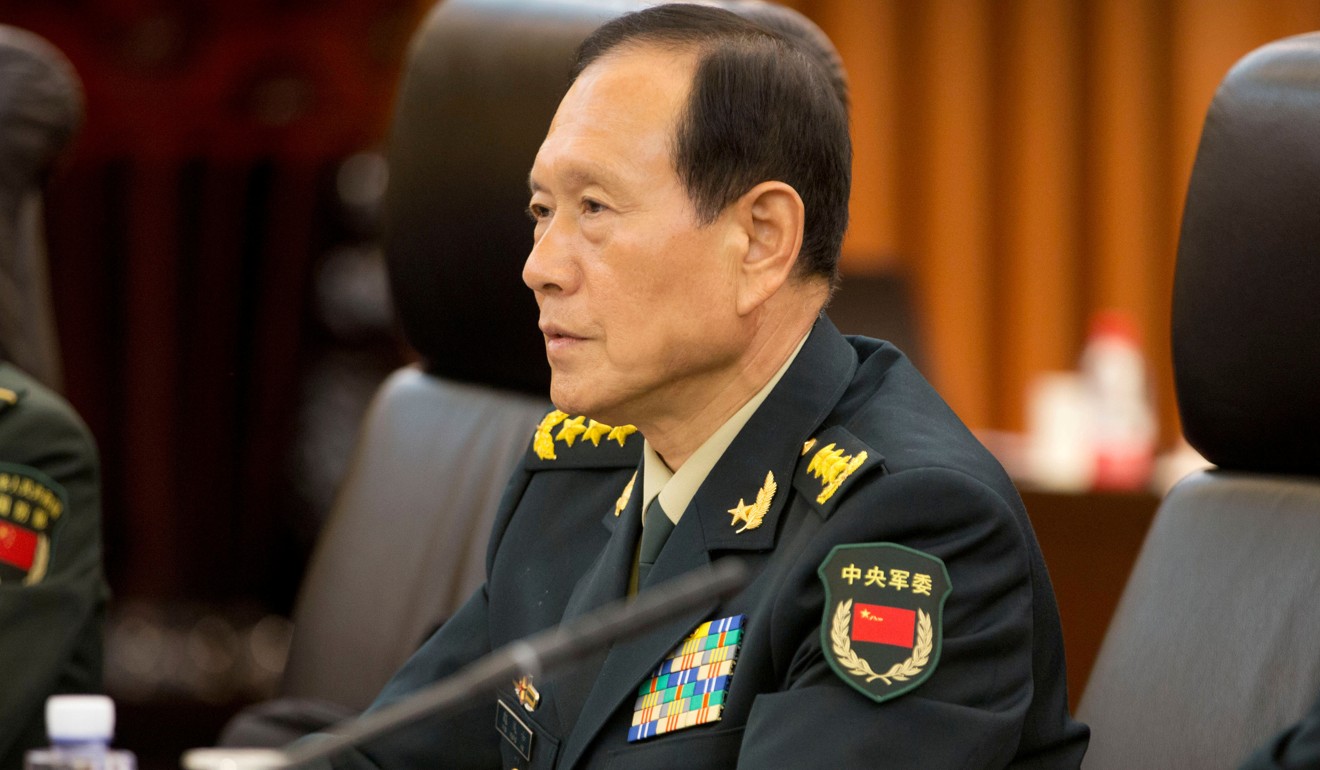China ends sanctions on Lotte two years after South Korean retailer cedes land to US missile defences
- Shenyang grants Lotte permission to complete US$2.6 billion leisure development
- Company angered Beijing by agreeing to give land to US military for missiles

China lifted its economic sanctions on South Korean retailer Lotte last month, more than two years after the company angered Beijing by yielding land for the deployment of a US anti-missile defence system in South Korea.
The municipal government of Shenyang, the capital of northeastern Liaoning province, gave the company permission last month to resume work on the US$2.6 billion Lotte Town shopping and leisure development, a spokesman for South Korea’s biggest retailer said on Thursday.
A final decision on whether construction would restart had yet to be made, the spokesman said. “We will closely observe the recent developments and will make the decision accordingly.”
The Shenyang government did not respond to requests for comment.
Lotte completed the first phase – a department store and a cinema – in 2014. The second phase – which included a theme park, flats and a hotel – stalled after Seoul agreed in 2016 to a long-standing US request to allow the Terminal High Altitude Area Defence system (THAAD) to be deployed on South Korean soil.
The system’s radar and interceptor missiles were set up on land in Seongju county that Lotte sold to the South Korean government.
Seoul and Washington said the system was meant to deter threats from North Korea, but Beijing saw THAAD as a security threat because it could monitor China’s military facilities.
The system went into operation in 2017, prompting protests from Beijing.
The construction of Lotte Town ground to a halt in December 2016, when Shenyang said the development had “not adequately following administrative procedures”.
After taking losses, Lotte announced plans to withdraw from mainland China last year. The retailer has outlets in Chengdu, Tianjin, Weihai and Shenyang, and said in July that it considered closing some of its stores in the country.

On Thursday, Lotte did not say if the Shenyang decision had swayed it against pulling out of China.
“We have only considered pulling some of our businesses out of China … No final decision has been made,” the group said, without elaborating.
The decision came weeks before South Korea’s defence minister was expected in China, when THAAD was likely to be discussed with Beijing.
Seoul said in March that Jeong Kyeong-doo would meet his counterpart, Wei Fenghe, to “fully normalise bilateral defence cooperation”.
A South Korean military source said Jeong “would visit China in mid-May” to discuss “problems surrounding THAAD, as well as ways to strengthen communication channels for crisis management”.
One analyst said the Shenyang decision might be a response to the economic slowdown in China.
“China’s overall macroeconomic situation has seen a decline in GDP over the last year or so,” James Floyd Downes, a lecturer in comparative politics at the Chinese University of Hong Kong, said. “At the same time, China’s northeastern region has suffered an economic slump.
“From a strategic economic perspective, China is most likely trying to boost its overall economy in Dongbei by allowing more foreign investment and [that] is likely to be part of a long-term economic strategy in the region,” Downes said, referring to the country’s northeast.
“China is also attempting to strengthen its ties with South Korea, in light of the trade dispute with the United States. Such a move could be a ‘strategic’ business asset for the Chinese government.”
